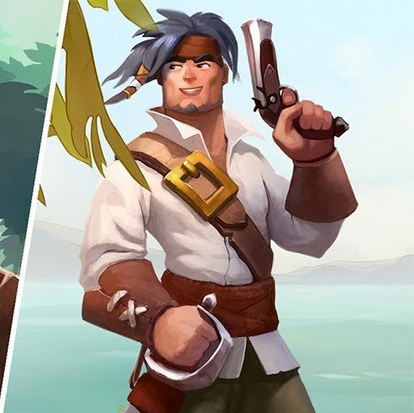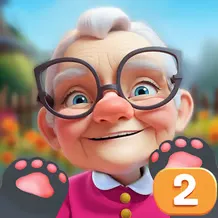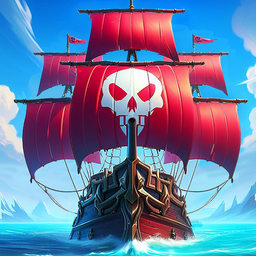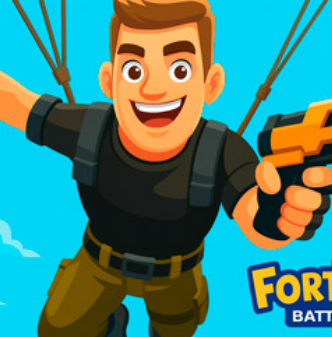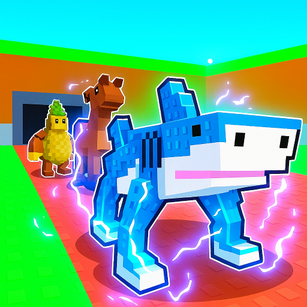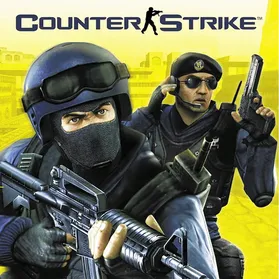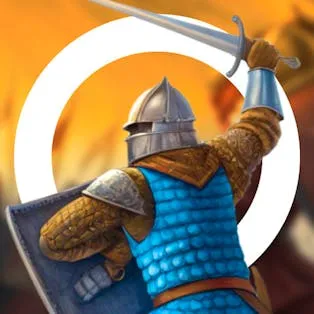-copy.png)
Dive into Mini Royale: Nations, the definitive browser-based Battle Royale and first-person shooter (FPS) that merges rapid-fire gameplay with a complex, player-owned Web3 economy. Discover the features, community ratings, and comparisons to rival traditional and Online Games.
Introduction: The Convergence of Fast-Paced FPS and Web3 Innovation
The gaming industry is currently undergoing a paradigm shift, where traditional Free-to-Play (F2P) models are intersecting with the burgeoning decentralized economy of Web3. At the forefront of this convergence stands Mini Royale: Nations, an ambitious project that successfully packages high-octane, skill-based first-person shooter (FPS) gameplay into an immediately accessible browser environment, simultaneously supporting a robust, player-owned ecosystem via blockchain technology.
Mini Royale: Nations is not merely a novelty in the decentralized application (dApp) space; it is a serious competitive shooter designed to appeal to veterans of the genre while remaining approachable enough for newcomers. It draws heavily on the legacy of streamlined, accessible browser-based experiences—often classified as IO Games—but scales up the complexity and stakes by introducing modern Battle Royale mechanics, seasonal content, and sophisticated tokenomics.
This detailed review will objectively analyze every critical aspect of Mini Royale: Nations, from its core shooting mechanics and technical specifications to its economic framework, market position, and player reception. We aim to provide an authoritative assessment for any gamer considering stepping into this fast-evolving sector of competitive Online Games. We have leveraged key parameters and valuable data from community platforms like PlayMoki and general gaming metrics to provide a professional, data-driven perspective.
Official Product Profile and Manufacturer Data
Official Product Name: Mini Royale: Nations
Product Status: Live Service / Early Access (on platforms like Steam)
Core Genre: First-Person Shooter (FPS), Battle Royale, Social Strategy, Web3 Gaming
Developer/Creator: Faraway
Publisher (Web3/General): Faraway
Publisher (Steam): IndigoBlue (Likely a publishing arm or subsidiary)
Blockchain Integration: Solana and Ethereum (optional for gameplay)
Availability: Browser (miniroyale.io) and Steam (PC)
Price: Free-to-Play (F2P), with optional NFT and fungible token purchases.
Faraway, the studio behind Mini Royale: Nations, was established by industry veterans, including co-founder Alex Paley, with the explicit goal of creating mass-market-ready Web3 games. This pedigree is crucial, as it explains the game’s polish and its deliberate focus on prioritizing engaging gameplay before introducing the blockchain layer. This approach has allowed the game to attract a significant user base, boasting approximately 300,000 monthly active users (MAU) and around 25,000 daily active users (DAU) in its browser-based version, proving its widespread appeal as a leading entry in the Web3 shooter category.
Specifications and Core Gameplay Features
Mini Royale: Nations distinguishes itself through its lightning-fast accessibility and its unique combination of shooter simplicity layered atop complex social strategy mechanics.
The Core Shooter Experience: Snappy, Accessible, and Competitive
The foundational layer of Mini Royale: Nations is a highly accessible, rapid-action FPS. The design philosophy centers around minimizing friction and maximizing engagement:
Fast-Paced Action and Map Design
Match Duration: Most competitive matches, such as Team Deathmatch (TDM) and Capture the Flag (CTF), are designed to be extremely short, often clocking in at three minutes or less. This design choice makes it a perfect entry point into the IO Games philosophy—quick bursts of action that players can jump into instantly during a break or study session.
Map Structure: The maps are intentionally small and adopt a familiar three-lane structure, reminiscent of classic arena shooters and certain modes in Call of Duty. This tight design ensures high-frequency engagements, eliminating downtime and encouraging aggressive, constant movement.
Movement Mechanics: The game features responsive movement controls, including a basic form of "bunny hopping." While not requiring the depth of skill seen in games like Quake, it adds a layer of speed and evasiveness critical for close-quarters combat.
Weapon Mechanics and Loadouts
The weapon loadout system is streamlined yet effective. Players choose from a selection of primary and secondary weapons before jumping into the lobby.
Arsenal: The game features around 10 core weapons, covering the necessities of the genre: Assault Rifles (like the highly versatile AK47 and MK18), Submachine Guns (SMGs), Shotguns, and Sniper Rifles (SSG).
Low Recoil Model: A crucial specification is the low-to-zero recoil on many weapons. This mechanic shifts the skill requirement away from intricate recoil control (like in CS:GO or Rainbow Six Siege) towards pure aim and crosshair placement, similar to the precision model of VALORANT. This enhances its appeal as an accessible shooter.
Performance Note: While the overall gunplay is fun and responsive, community feedback, including insights gathered from community sites like PlayMoki, often points out that certain weapons, particularly the sniper rifles, can feel underwhelming. The small map size and lack of one-shot chest kills limit the traditional impact of long-range precision tools.
Layered Game Modes and Progression
Mini Royale: Nations offers continuous engagement through its diverse modes and seasonal content structure.
Core PvP Modes: Team Deathmatch (TDM) and Capture the Flag (CTF) are the staples, providing quick, objective-based action.
Progression Systems: The game features a robust Battle Pass system that rewards dedicated players with skins, cosmetics, and the components necessary to craft high-rarity items in the Fusion Lab. This seamless progression system provides a strong sense of achievement even for non-Web3 players.
Upcoming Features: The developers are actively committed to expanding the experience, with plans for additional modes, including PvE experiences, quality-of-life updates, and more extensive character customization options, ensuring its longevity as a live service Online Game.
The Web3 Integration and Player-Owned Economy
What truly sets Mini Royale: Nations apart from purely traditional IO Games is its deep yet optional integration of blockchain technology. The game functions perfectly as a standalone F2P shooter, but connecting a wallet unlocks the Nations layer of the game.
The Decentralized Ecosystem
Mini Royale: Nations is built primarily on the Solana blockchain, chosen for its speed and low transaction costs, making it ideal for a real-time multiplayer experience. Players can choose to interact with the economy in several key ways:
NFT Assets: Key in-game assets are represented as Non-Fungible Tokens (NFTs):
Heroes and Weapon Skins: These are primarily cosmetic, though some weapon skins can alter iron sights, offering a minor utility benefit. These can be minted (often earned for free through dedicated play) and traded on external marketplaces like Magic Eden.
Land and Buildings: The "Nations" aspect introduces a social strategy layer where clans can own virtual land, build structures, and participate in resource control. This system adds a macro-game that rewards social coordination.
Dual Token Structure: The economy is managed using two primary tokens:
$CHEDDAR: The primary in-game fungible currency, earned through playing matches and completing challenges. It is used for purchasing cosmetics, crafting, and progression within the Battle Pass.
$SOL (Solana): The premium token, which can be earned by participating in competitive weekly Clan Wars and other high-stakes events. Earning direct crypto rewards by playing is the ultimate expression of the Play-to-Earn (P2E) model, providing tangible value to a player’s in-game achievements.
Clan Wars and Social Strategy
The "Nations" component is the social, strategic backbone. Clans compete for territory and rewards through weekly Clan Wars. This system goes beyond simple matchmaking, rewarding players not just for their shooting skill but for their ability to coordinate, strategize, and manage resources across their alliance. This deep social mechanic elevates the title from a simple twitch-shooter to a persistent, community-driven world. The game’s design inherently rewards social behavior, fostering a player base that is invested in both the combat and the meta-game politics.
Performance Analysis, Pricing, and Player Sentiment
An objective review requires a look at the game’s performance metrics and how it is perceived by its community.
Technical Performance and Availability
One of the game's greatest technical achievements is its accessibility.
Browser-Based F2P: Being a browser-based application, it requires no lengthy download, low system specifications, and runs smoothly on most modern computers and laptops. This is a massive advantage in the competitive landscape of Online Games, immediately removing a barrier to entry.
Engine: The game utilizes modern engine technology, delivering a vibrant, cartoon-like, Fortnite-esque art style that looks appealing while maintaining high frame rates.
Drawbacks: The game, particularly in its Early Access state on platforms like Steam, still contends with technical "jankiness." Player feedback often cites minor issues, such as occasional poor spawning systems, some character model animation glitches, and minor network inconsistencies, which are expected challenges for a live-service project built for maximum accessibility.
Pricing Model and Value Proposition
Mini Royale: Nations adheres strictly to the F2P model, providing excellent value.
Entry Cost: $0.00. The entire game, including core PvP modes and progression systems, can be enjoyed without ever spending money, making it a true F2P title in the vein of popular IO Games.
Web3 Investment (Optional): Monetary investment is entirely optional and centered on acquiring NFT cosmetics for personalization or Land NFTs for participation in the macro-strategy game. Crucially, the developers allow players to earn their first NFTs for free, emphasizing an "Earn-to-Own" philosophy over "Pay-to-Win."
Real Ratings and Community Reception
The overall reception from the core gaming community is Mixed, reflecting the tension between the fast, fun gameplay and the complexities and imperfections of a game in active development that also incorporates novel Web3 features.
Steam Reviews: Steam user reviews for Mini Royale generally fall into the "Mixed" category. For instance, across a large pool of English reviews (over 1,300), approximately 59% are positive. Recent reviews trend slightly lower (around 57% positive).
Community Sentiment:
Pros: Players praise the game’s addictive quality, the effectiveness of the fast-paced gunplay, the accessible browser entry point, and the rewarding, continuous Battle Pass progression.
Cons: Criticism frequently focuses on the technical glitches, balance issues (especially with snipers), and the confusion surrounding the optional Web3 mechanics for traditional players.
The overall sentiment is that the game is a fun, highly addictive shooter that is worth playing even if one chooses to ignore the blockchain component entirely. The data confirms its viability as a competitive F2P option.
Comparative Analysis: Mini Royale in the Gaming Ecosystem
Mini Royale: Nations occupies a unique niche, straddling the line between the hyper-accessible IO Games genre, mainstream F2P shooters, and the emerging Web3 landscape.
Comparison to Traditional Browser/IO Games
Game | Platform | Core Mechanic | Key Differentiator |
Mini Royale: Nations | Browser/Steam | 3D FPS, Battle Royale | Full Web3 NFT integration (Solana/Ethereum). |
Krunker | Browser/Client | Voxel FPS, Arena Shooter | Purely traditional F2P, highly popular IO Games style. |
Agar.io / Slither.io | Browser | Simple Growth/Survival | IO Games focus on minimalist mechanics and scaling. |
Mini Royale: Nations takes the core philosophy of IO Games—instant, low-barrier entry—and supercharges it with modern 3D FPS gameplay, seasonal content, and player ownership, offering a significantly deeper competitive experience than most of its browser-based peers.
Comparison to Web3 Competitors
While many Web3 games focus on RPGs or Strategy (e.g., Axie Infinity, Illuvium), Mini Royale: Nations stands out by delivering a high-skill, real-time FPS.
BR1: INFINITE: A direct comparison, also a risk-based shooter, but Mini Royale has a more polished, widely accessible, and traditional F2P entry point. BR1 often requires players to "pay to spawn," which is a far more aggressive P2E model than MRN's "free to play, earn to own" system.
Matr1x Fire: A mobile-focused Web3 shooter, but Mini Royale’s browser accessibility gives it a significant advantage in PC/Desktop-based Online Games.
Mini Royale’s successful delivery of a smooth, fun, high-fidelity FPS experience directly in the browser, complete with Web3 functionality, makes it arguably the leading contender for the decentralized shooter genre.
The Final Verdict: A Web3 Pioneer Worth Playing
Mini Royale: Nations successfully delivers on its ambitious premise: a high-quality, fast-paced first-person shooter accessible to anyone with a browser, underpinned by a forward-thinking Web3 economy.
The game is a technical and mechanical success, offering the instantaneous action expected of top-tier IO Games while maintaining the competitive depth of a full-scale FPS. The Online Games community benefits greatly from the zero-friction entry point and the engaging, short-burst nature of its core gameplay.
While the "Mixed" community rating reflects minor technical hiccups and ongoing development needs, the dedication of the Faraway team to seasonal content and refining the experience is clear. For gamers curious about the P2E space, or simply looking for an addicting, skill-based shooter that doesn't require a high-end rig or a massive download, Mini Royale: Nations offers unparalleled value. The integration of platforms and community data, such as that provided by PlayMoki, underscores the transparency and valuable parameters available to players tracking its progress.
The Verdict: Mini Royale: Nations is a standout title. It earns high marks for accessibility, gameplay satisfaction, and pioneering Web3 integration. It is highly recommended for all FPS enthusiasts and anyone looking to experience the future of digital asset ownership in competitive Online Games.
Encouraging Interaction
Have you earned your first Solana prize in Clan Wars, or do you prefer the classic Team Deathmatch? Dive in today, forge an alliance, and let us know which Hero or Weapon NFT you’re aiming for. The future of competitive Online Games is already here—don't miss your drop.
Frequently Asked Questions (FAQ)
Q: Is Mini Royale: Nations truly free-to-play (F2P)?
A: Yes. Mini Royale: Nations is entirely free-to-play. You can load the game in your browser, jump into matches, and enjoy the core gameplay loop without creating an account or connecting a cryptocurrency wallet. All in-game purchases and Web3 features are optional.
Q: What is the main blockchain network Mini Royale: Nations uses for NFTs?
A: Mini Royale: Nations primarily uses the Solana blockchain for its in-game NFT assets (like Heroes and Weapon Skins) and its rewards system, which allows players to earn $SOL prizes in competitive modes like Clan Wars. However, it also has some integration with the Ethereum network.
Q: Is Mini Royale: Nations considered an IO Game?
A: While Mini Royale: Nations features sophisticated 3D graphics and complex mechanics unlike simple 2D IO Games, it embodies the core philosophy of the genre: being instantly accessible through a browser with zero download barriers and offering a streamlined, addictive gameplay loop. It is a modernized, high-fidelity entry in the accessible Online Games landscape.
Q: What is the relationship between the in-game tokens, $CHEDDAR and $SOL?
A: $CHEDDAR is the game's primary utility token, earned simply by playing, and used for buying common cosmetics and progressing through the game. $SOL (Solana) is the premium cryptocurrency token, which is earned primarily by excelling in high-level, competitive Clan Wars, thus offering real-world financial value to top-tier players.
Sources and References
Faraway Games/Official Mini Royale: Nations Website. (Developer and Official Game Information).
PlayMoki platform (Reference for key parameters and community tracking data).
Steam Community Reviews and Data (For player ratings, including English/Recent review scores, and general market presence).
MMORPG.com (For gameplay overview and comparison to other Web3 titles).
DappRadar/Alchemy (For blockchain integration details, token structure, and Web3 competitor analysis).
GAM3S.GG (For detailed gameplay review and feature specifics).


